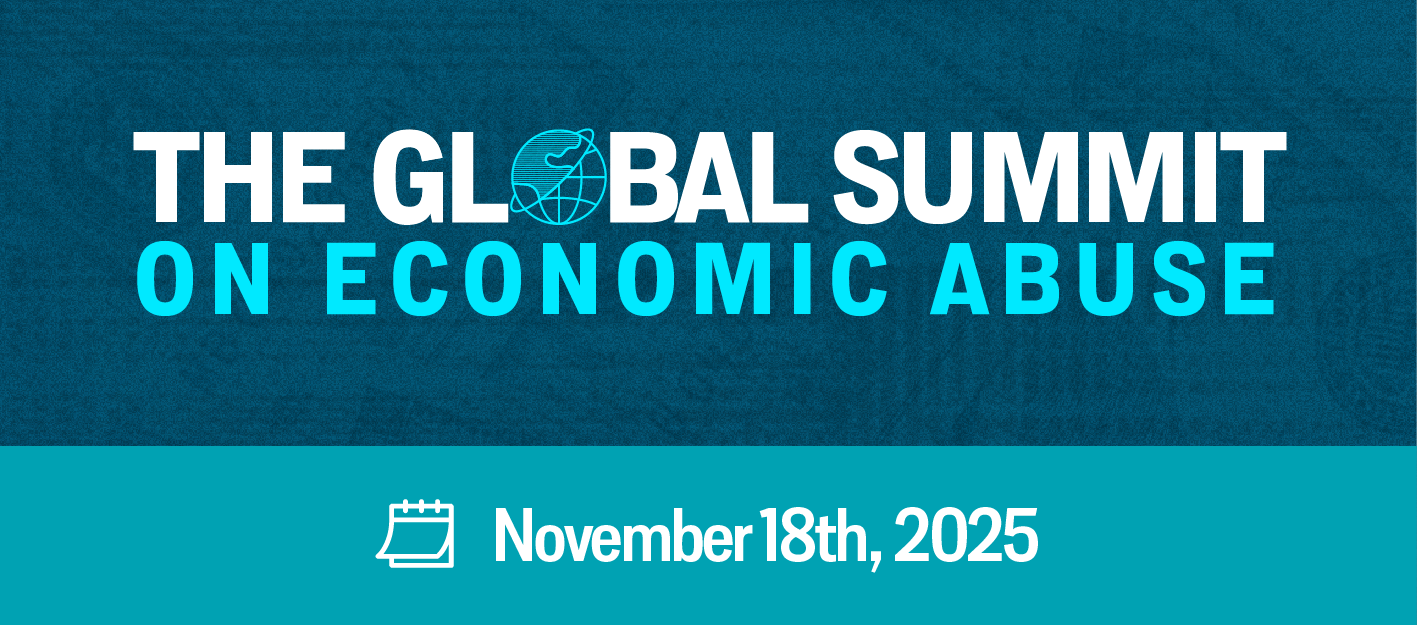Why Businesses Should Help End Economic Abuse

Economic abuse is one of the most pervasive yet underrecognized forms of domestic abuse, present in 99% of domestic violence cases. It extends beyond physical or emotional harm, taking the form of financial control, exploitation, and sabotage that strips individuals of their independence and stability. Survivors often find themselves unable to leave abusive relationships because they lack access to money, resources, or credit. The impacts can be profound and long-lasting, leaving its victims facing debt, damaged credit, and employment instability that can take years to overcome.
While economic abuse may take place in personal relationships, businesses have both the power and responsibility to help end it.
The Case for Business Leaders
- Economic abuse can affect every level of the workforce.
Survivors of abuse are more than statistics. They’re employees, customers, and members of our communities. Studies show that abuse, including economic abuse, can significantly impact job performance, absenteeism, and career progression. For businesses, this translates into lost productivity, higher turnover, and increased costs. Supporting efforts to address economic abuse is not just the right thing to do; it’s also smart business.
- Financial systems can perpetuate or prevent financial abuse.
Banks and financial institutions are often the front lines where economic abuse can be enforced or disrupted. From coerced debt to blocked access to bank accounts, abuses manipulate systems to gain control. When businesses innovate with survivor-centered policies like flexible account access, discreet customer support, or debt relief mechanisms, they can empower survivors to overcome cycles of abuse and regain independence.
- Collaboration drives change.
No single sector can end economic abuse alone. Business brings resources, expertise, and networks that are essential in building solutions. Whether offering survivor-supportive workplace policies, partnering with nonprofits, or leveraging technology to create safer financial products, businesses can play an impactful role in fostering cross-sector responses to abuse.
How Businesses Can Engage
- Create supportive workplaces: Implement HR policies that offer paid leave, flexible work arrangements, and protections against discrimination for survivors of abuse.
- Train staff: Identify signs of economic abuse and provide guidance on how to support customers or employees safely.
- Innovate responsibly: Develop financial products and services designed to protect and empower survivors, including credit repair support or secure banking options.
- Lead the conversation: Join NO MORE and the International Coalition Against Economic Abuse for a landmark, online Global Summit on Tuesday, November 18th, featuring the voices of survivors, experts, policymakers and global business leaders to learn more about how to take action against economic abuse.

To learn more about how you and your business can get involved in addressing economic abuse, register today for the Global Summit on Economic Abuse and take the first step in driving meaningful change. Your leadership can help break the cycle of abuse and build safer, more supportive communities for all.
Together We Can End Domestic and Sexual Violence






